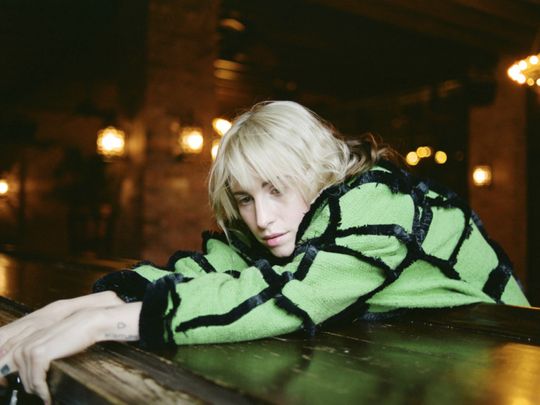
The pandemic has fostered music of solitude and self-reliance. For most of her years as the singer and central songwriter of Paramore, the multimillion-selling, arena-filling punk-pop band she formed as a teenager in 2004, Hayley Williams insisted that she had no interest in making a solo album. But her new, surprise-released ‘Flowers for Vases/Descansos’ is her second solo album in less than a year, and it’s more solo than ever.
‘Flowers for Vases/Descansos’ was entirely written and performed by Williams and recorded at her home studio. Separation and loneliness suffuse the songs, as Williams contemplates the aftermath of a break-up, surveying memories and what-ifs, regrets and accusations and, especially, the ways attachment can linger. Williams was divorced in 2017, after a nearly decadelong relationship and a year of marriage, from Chad Gilbert, guitarist in the emo band New Found Glory. ‘Flowers for Vases/Descansos’ suggests she’s still working things through on her own — away from her ex, away from her band.
“I’m scared to lose what’s left of you,” she sings in ‘First Thing to Go’, the album’s opening song, wistfully adding, “I just finish my own sentences the way you used to.” In “Asystole” — the title is a medical term for heart failure — she sings, “I want to forget/But the feeling isn’t something I can let myself let go of.” In “KYRH,” she sets up layers of undulating, minimalist piano chords and cello tones as she sings “Keep you right here,” contemplating stasis. In “No Use I Just Do” she struggles with longings she’d rather push away.
And in ‘Good Grief’, she sings, “Pretty sure you don’t miss the way I put all my demons on display/To your pretty music.”
Williams recorded her first solo album, ‘Petals for Armor’ from 2020, before the pandemic, working with Paramore’s guitarist Taylor York as producer along with other songwriting collaborators and backup musicians. They helped Williams decisively break free of punk-pop, as she toyed with electronics, disco beats, glossy pop, jazzy intricacies and indie-rock introspection. The album relied on her gift for melody and her careful emotional balancing: rage and self-criticism, insecurity and conviction. And while Paramore had allowed itself an occasional ballad, with “Petals for Armor” Williams proved emphatically that she didn’t have to shout.
‘Flowers for Vases/Descansos’ has a narrower, quieter palette, although Williams easily handles guitars, keyboards and drums on her own. As on Taylor Swift’s 2020 quarantine albums, ‘Folklore’ and ‘Evermore’, many of the songs have a folky acoustic guitar, strummed or picked, at their core. Williams opens some tracks with snippets of lo-fi demo versions, hinting at the many steps between songwriting and recording. The songs on ‘Flowers for Vases/Descansos’ are finely polished: every vocal phrase, guitar tone, piano note and studio effect has been thought through by Williams and her engineer and producer, Daniel James.
Williams’ pop-punk skills resurface, only slightly subdued, in ‘My Limb’, which methodically sets out riffs on guitars and piano while it envisions a break-up as an amputation: “If your part of me is gone now, do I want to survive?,” she wonders.
But more often, she starts songs as solo reflections, then tunnels inward. ‘First Thing to Go’, a slow-strummed acoustic-guitar waltz, gathers hovering voices and a syncopated electric-guitar undertow, the parts wafting in like inescapable memories. ‘Inordinary’ is almost countryish, as an opening declaration — “I don’t want to be your friend or just one of the guys/I am nobody’s” — gives way to autobiographical memories of moving to Tennessee with her mother and meeting her soul mates in the band, as echoes and resonances drift up around her.
And in “Just a Lover,” she reconsiders most of her life, from growing up as a music fan to pouring her troubles out for millions of listeners: “I feel my heart crack open, one last chorus.”
The track opens with quietly tolling piano chords but builds to a full-band electric stomp, only for Williams to question her own path forward: “No more music for us. Or the masses,” she sings, as full-throated as she is anywhere on the album. “I know exactly what this is/Or whatever it was.”
Her deep uncertainty is the album’s final note. But at the same time, the music makes something abundantly clear: Lonely or not, she didn’t need those guys.









